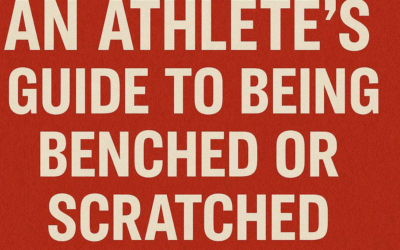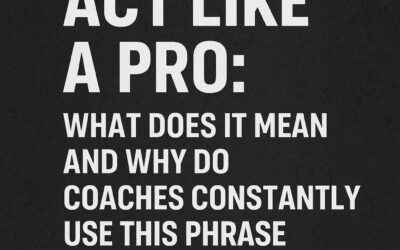|
In high performance sport, athletes don’t just show up. they show up with purpose. The idea of a “job description” for athletes might sound unusual at first. After all, sport is supposed to be fun, right? But the truth is, elite performance and mental wellbeing thrive in environments with clarity, structure, and intention. Knowing exactly what’s expected, both on and off the field play can provide athletes with the mental scaffolding to excel, grow, and stay grounded. What the GOAT’s Say:
🏊♂️ Michael Phelps“If you want to be the best, you have to do things that other people aren’t willing to do.”
Why it fits: Emphasizes the invisible, often unglamorous parts of the athlete job—perfect for talking about sleep, recovery, mental prep, and contact hours. 🏀 Kobe Bryant“I have nothing in common with lazy people who blame others for their lack of success. Great things come from hard work and perseverance. No excuses.”
Why it fits: Drives home the professionalism and self-responsibility side of the athlete job description. ⚽ Mia Hamm“It is more difficult to stay on top than to get there. Every day you have to work harder.”
Why it fits: Great for reminding parents and athletes that showing up every day with consistency is part of the job. 🎾 Serena Williams“I really think a champion is defined not by their wins, but by how they can recover when they fall.”
Why it fits: Perfect if your article includes emotional recovery and resilience as key components of the athlete’s job. 🏈 Tom Brady“Every single day, you have to show up with your best—you have to earn it every day.”
Why it fits: Reinforces the daily standard that a job description helps create. 🏒 Sidney Crosby“You have to approach every day as if it’s your job. You show up, put in the work, and do it the right way.”
Why it fits: This directly supports the “athlete job description” idea and the importance of daily professionalism. Perfect for your article. ________________
Clarity Builds ConfidenceWhen athletes are clear about what’s required of them (training standards, mindset expectations, lifestyle habits) they’re more likely to feel confident and prepared. Clarity removes ambiguity. It reduces the mental energy spent guessing, overthinking, worrying, or comparing, and channels it into performance. Instead of feeling overwhelmed by vague notions of “being better,” athletes begin to see performance as a set of behaviors and skills they can work on, track, and improve.
Structure Supports Mental HealthStructure is not about restriction. It’s about protection. In high-pressure environments, having a defined role and clear expectations can actually reduce anxiety and uncertainty. It helps athletes manage stress, organize their time, and maintain healthy routines (crucial elements for mental health and sustainable performance). When we normalize a “job description” for athletes, we also normalize conversations about balance, boundaries, wellbeing, and the full identity of the athlete, not just their stats. A Blueprint for GrowthThe best athletes aren’t just skilled, they’re consistent, accountable, and coachable. A job description acts like a mirror. It shows athletes where they’re strong, where they need support, and how their daily actions align with long-term goals. It reinforces that high performance is about more than talent, it’s about training the mind, managing recovery, showing leadership, and embracing the process. And for coaches, it provides a common language to teach life skills, model professionalism, and co-create a psychologically informed team culture. ________________
Actionable Tips: Bringing the Job Description to Life
________________
Final ReflectionSelf-Reflective Question: Ready to level up your performance? Start by defining the role you want to play—then show up like a pro. ________________
|




